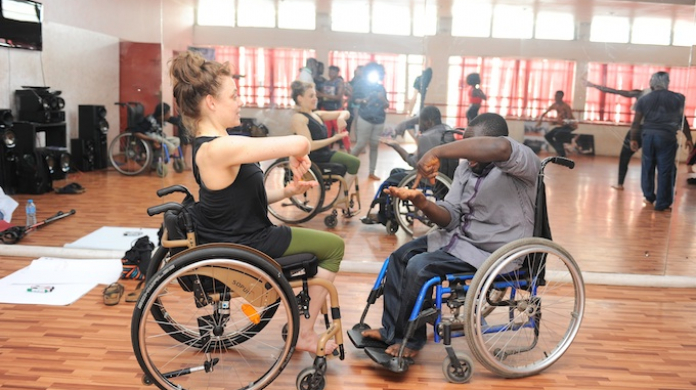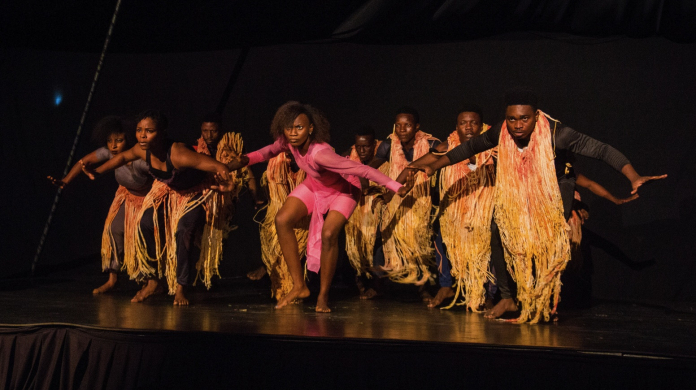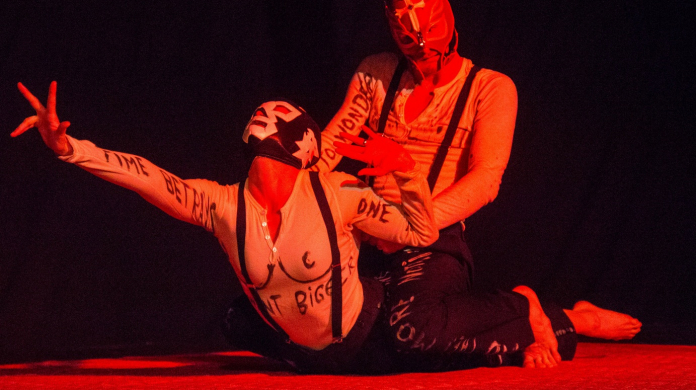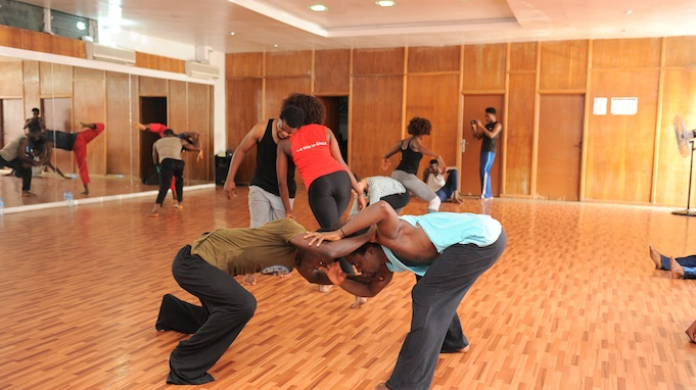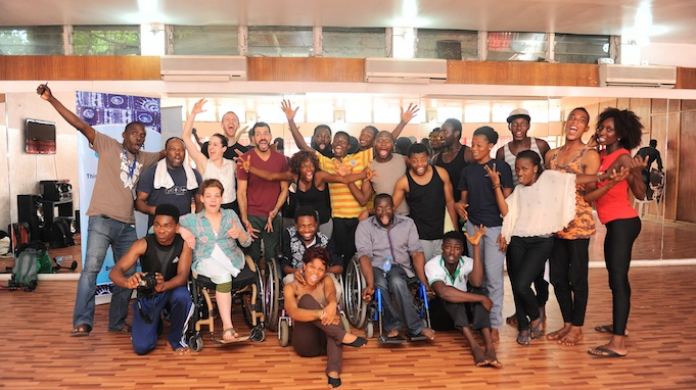Dan Daw visited Lagos with Candoco Dance. He talks about the shifts that are starting to happen, and why inclusive dance is important.
Shifts in Lagos
We went to Lagos to dance, and to work in a mentoring capacity alongside choreographers and dancers, as a way for them to see me working as a disabled dancer inside one of their pieces. Some other Candoco dancers went over in May to do a recce and site visit, and they chose the choreographers they wanted to mentor and work with. That’s when the idea came about, of me being inserted into Qudus Onikeku’s work.
When we returned in October, they were already two weeks into the creative process, so there really wasn’t space for me to dance in the work, because it had essentially been made already. Qudus was already happy with the form. We were expecting it to feel like day one of rehearsal, but it was in fact day 21! It would have defeated the purpose of my being there to try and slot me in. We ended up making a new piece together instead, which was wonderful.
Qudus and Ijodee Dance Company were the two choreographers we worked with. We were specifically mentoring them in inclusive dance practice – how they could bring disabled dancers into their work and work in an integrated context. We mentored and asked questions about the work. It was mostly around the dramaturgy of their pieces and their process – questioning and talking about how they might work differently.
The best thing about the trip was meeting people and talking. It was great to talk to British Council Nigeria about what they’d done and what they’d like to do, how they’d like to take projects like this further. That was really exciting – to understand how it all functions over there. We spent a lot of time in the hotel, because we weren’t allowed out on our own for security reasons. I really relished the opportunities to talk to people, and learn more about how life and creative processes work in Lagos.
What I brought back with me is that there’s a hunger over there to really want to learn how to work inclusively. Lagos is like no other place I’ve ever visited. What was really special was that it never felt like ‘we the British are going to come over and tell you how this is done’, it was very much an exchange, and to learn ‘oh, that’s another way you could work with disabled people’ and all their propositions are just as valid. It was a learning curve for me, too, about validity of practice based on location. There are not hard and fast rules.
Value and learning came through sharing. It was really valuable for me to share our practice because of how they responded and fed back. That response is something I will take with me as a creative leader wherever I go.
There is, of course, a lot more work to be done. What really stood out for me, though, is that the people we worked with were hungry for this cultural shift to be happening in Nigeria. They welcomed that shift and were proactive, we had excellent conversation about how to make that shift happen.
Dan Daw went to Lagos with Candoco, and with the support of the British Council. He was talking to Eleanor Turney.
